Plenary Session 1 of the 2024 Global MOOC and Online Education Conference, titled “Transforming Higher Education for the Future: Exploring In-Depth Reconstruction of University Models,” was successfully held on the afternoon of December 12, 2024, London time. The conference was organized by the Global MOOC and Online Education Alliance and the UNESCO Institute for Information Technologies in Education, with Tsinghua University, Beijing University of Posts and Telecommunications, and Queen Mary University of London as co-hosts.
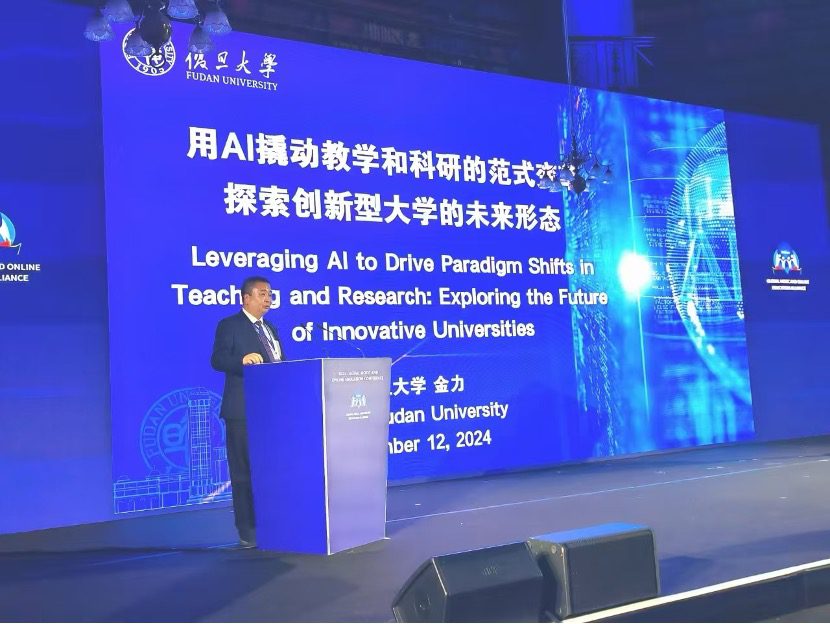
During the Keynote Presentations, Professor Jin Li, President of Fudan University, discussed the profound transformations universities are undergoing amidst the wave of artificial intelligence. He highlighted that AI for Science is accelerating changes in the paradigms of scientific research, educational models, and content. Fudan University is actively embracing AI by focusing on both faculty and teaching innovation. Faculty AI literacy is being enhanced to drive a “research paradigm shift,” while innovative AI courses and degree programs are fostering a “learning paradigm shift.” The AI+Education reform has already shown promising results, with collaborative learning flourishing and an open innovation ecosystem taking shape. AI for Science is achieving remarkable breakthroughs across diverse fields.
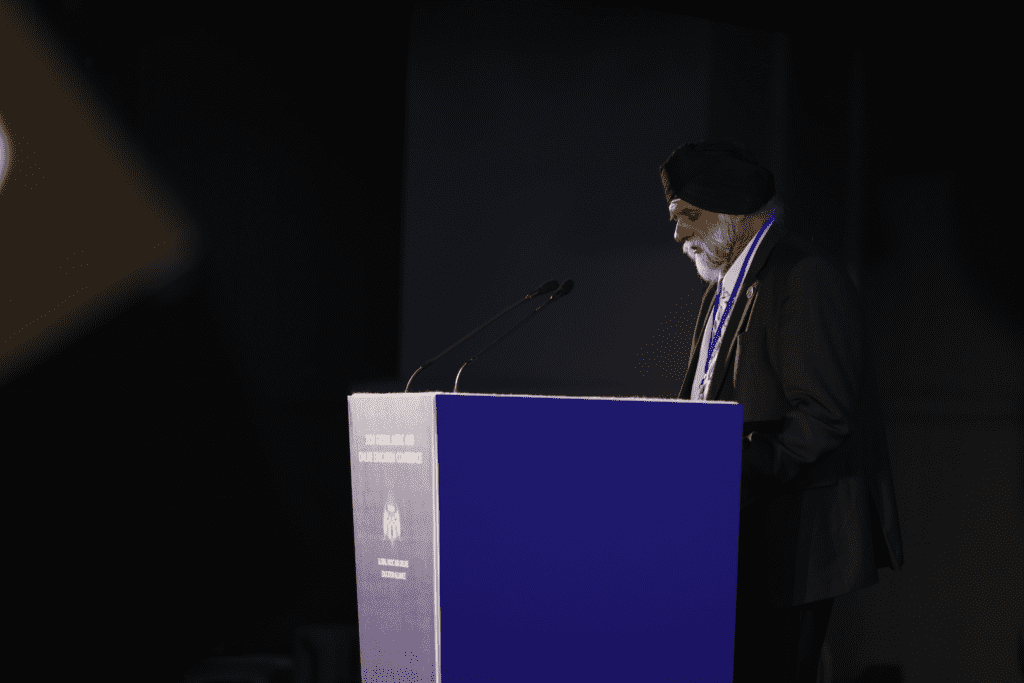
Professor Pal Ahluwalia, Vice-Chancellor and President of The University of the South Pacific, spoke about the diverse challenges faced by the university and the application of digital technology. He mentioned that geopolitics has a significant impact on higher education, especially in terms of funding and partnerships. Professor Ahluwalia introduced that the university is using AI for teaching, with more than 50% of students shifting to online courses, which poses new requirements for the university’s hybrid learning model.
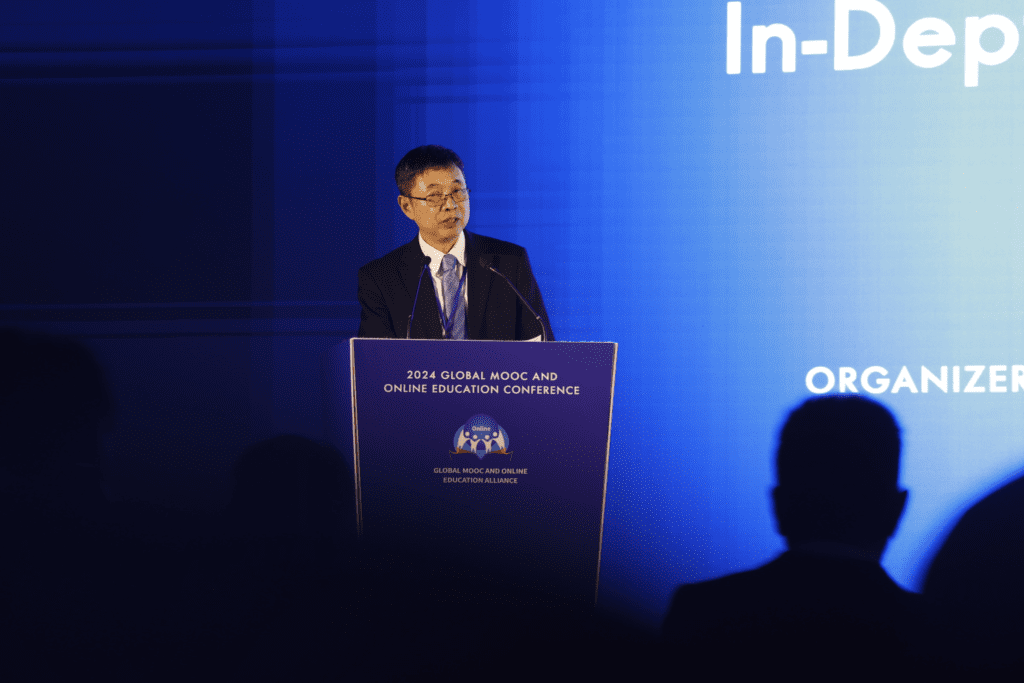
Professor Yang Zongkai, President of Wuhan University of Technology, shared his experience working at three different universities in China and emphasized the importance of AI as a driving force for future development. He noted that China has one of the largest education systems in the world and is facing challenges in the era of intelligence. Chinese universities have a responsibility to conduct in-depth scientific research to help the next generation acquire the skills required in the new era. He emphasized that there are significant differences between humans and machines, and educators should help students develop their potential and wisdom as humans.
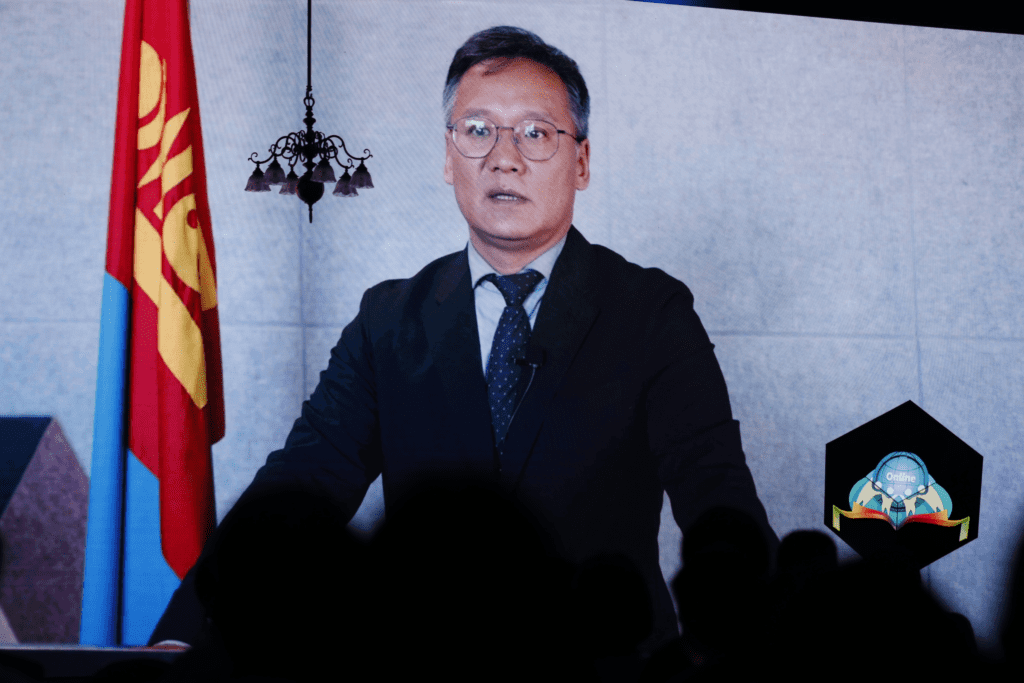
Professor Namnan Tumurpurev, President of Mongolian University of Science and Technology, highlighted the importance of the Global MOOC and Online Education Alliance, believing that through in-depth exchanges and sharing, institutions can actively share resources. He mentioned that Mongolian University of Science and Technology has joined the Alliance and is providing quality MOOCs globally to support the learning and development of teachers and students.
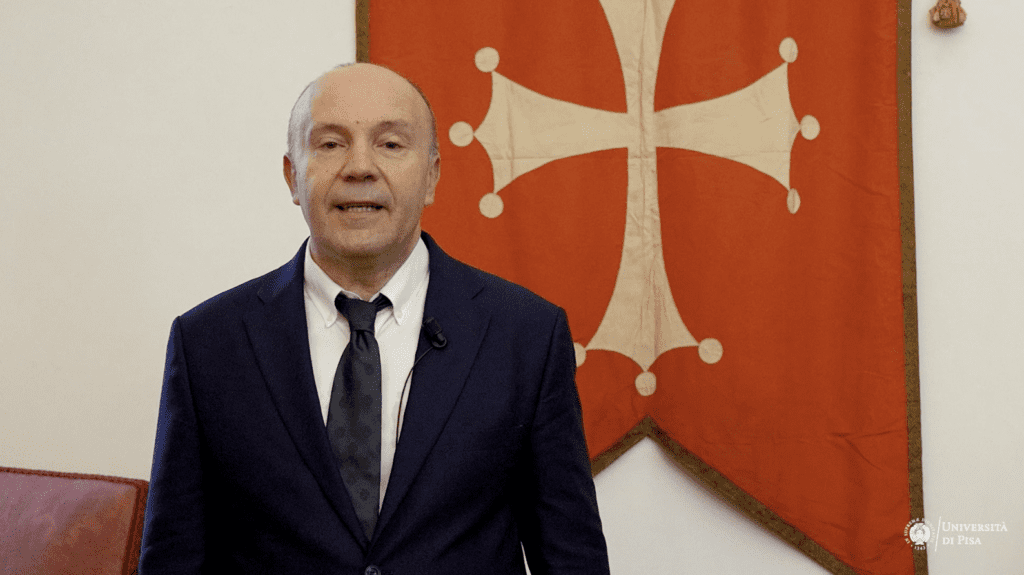
Professor Giovanni Gronchi, Vice Rector of University of Pisa, introduced the development of the university’s online education projects and the National Center for Digital Education. He mentioned that the National Center for Digital Education project, funded by the Italian Ministry of Education and Merit, provides quality online courses to university learners and workers in Italy. The University of Pisa has been continuously developing courses for lifelong learning and encourages lifelong learning.
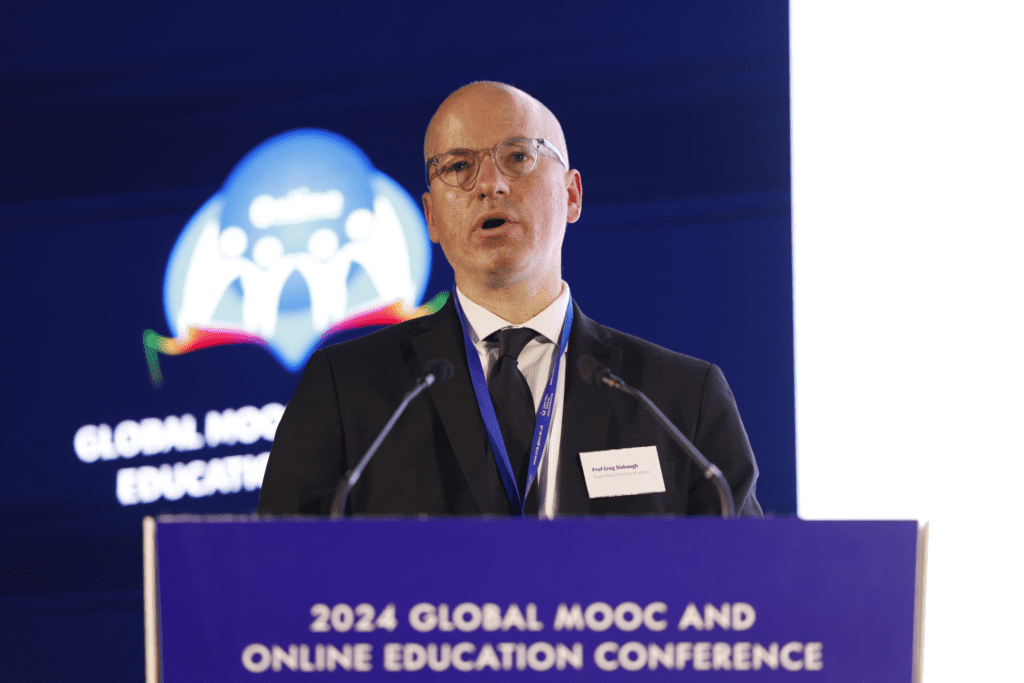
Professor Greg Slabaugh, Professor of Computer Vision and AI and Director of the Digital Environment Research Institute (DERI) of Queen Mary University of London, introduced the digital science and AI technology research conducted by DERI and discussed the challenges and opportunities brought by AI and large language models. Queen Mary University of London is incorporating AI into the teaching system to help students improve their learning efficiency. He emphasized that the application of AI must comply with ethics and reminded people not to overly rely on AI but to think critically about the results generated by AI.
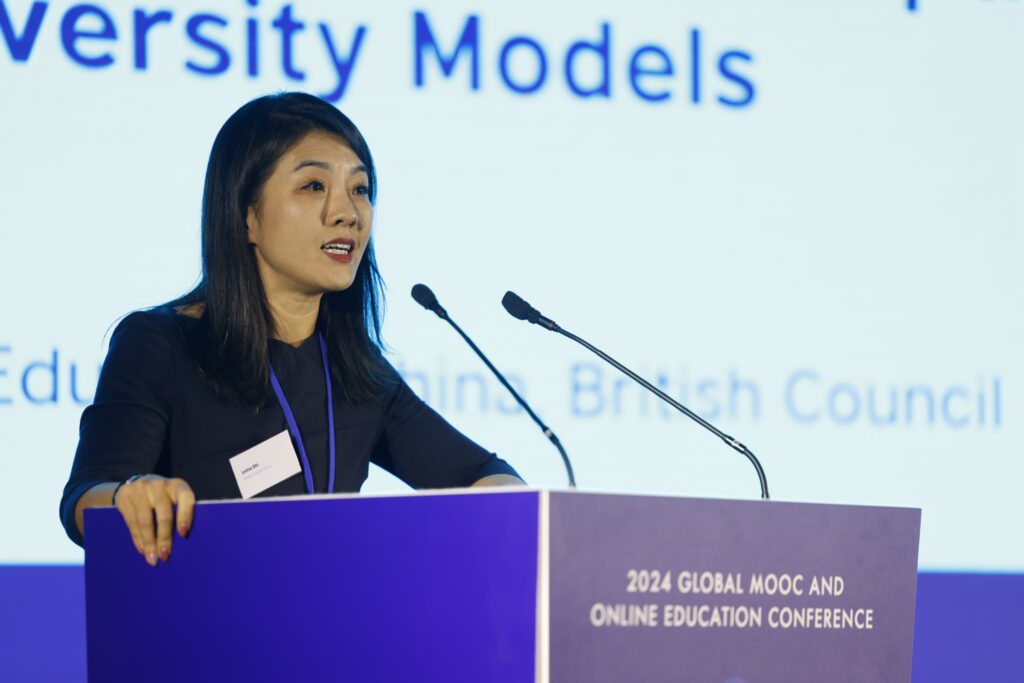
Leina Shi, British Council China Education Director, shared her perspectives from different angles based on her work characteristics. She introduced that the British Council is committed to building people to people exchanges between China and the UK and establishing mutual trust. She stated that British universities acknowledge China’s significant progress in digital development and its outstanding work efficiency. Regarding the current challenges, she emphasized the importance of critical thinking, communication, and language skills and called on educators to reshape education to embrace diverse ideas.
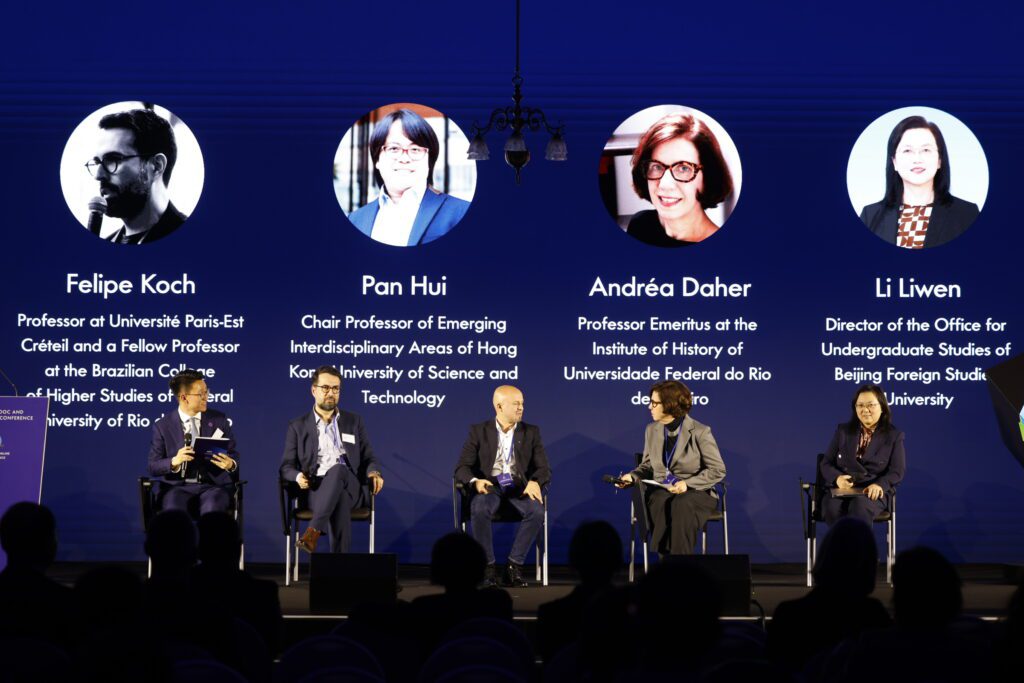
During the Panel Discussion, experts conducted in-depth discussions on the role of AI in higher education. Felipe Koch, Professor at Université Paris-Est Créteil and a Fellow Professor at the Brazilian College of Higher Studies of Federal University of Rio de Janeiro, believed that AI will reshape and disrupt higher education and called on everyone to actively participate in shaping the future. Pan Hui, Chair Professor of Emerging Interdisciplinary Areas of Hong Kong University of Science and Technology, believed that AI will promote personalization in higher education and shared the university’s efforts in advancing metaverse-based virtual interactions on campus. Ana Célia Castro, Director of the Brazilian School of Advanced Studies at Universidade Federal do Rio de Janeiro and Andréa Daher, Professor Emeritus at the Institute of History of Universidade Federal do Rio de Janeiro, emphasized future project, a flexible learning initiative addressing sustainability, innovation, and global South collaboration. Li Liwen, Director of the Office for Undergraduate Studies at Beijing Foreign Studies University, introduced the MOOCs for foreign language learning initiated by BFSU and shared the university’s experience in sharing high-quality educational resources. Gjergji Kasneci, Professor in Responsible Data Science of Technical University of Munich, discussed how to use AI responsibly. During the discussion, experts agreed that AI is not only an application technology but also a catalyst for transforming education models.
The Keynote Presentations and Panel Discussion were moderated by Chie Adachi, Dean for Digital Education at Queen Mary University of London, and Li Yifan, Senior Manager of Tsinghua University Online Education Center and Assistant Secretary-General of the Global MOOC and Online Education Alliance, respectively.
